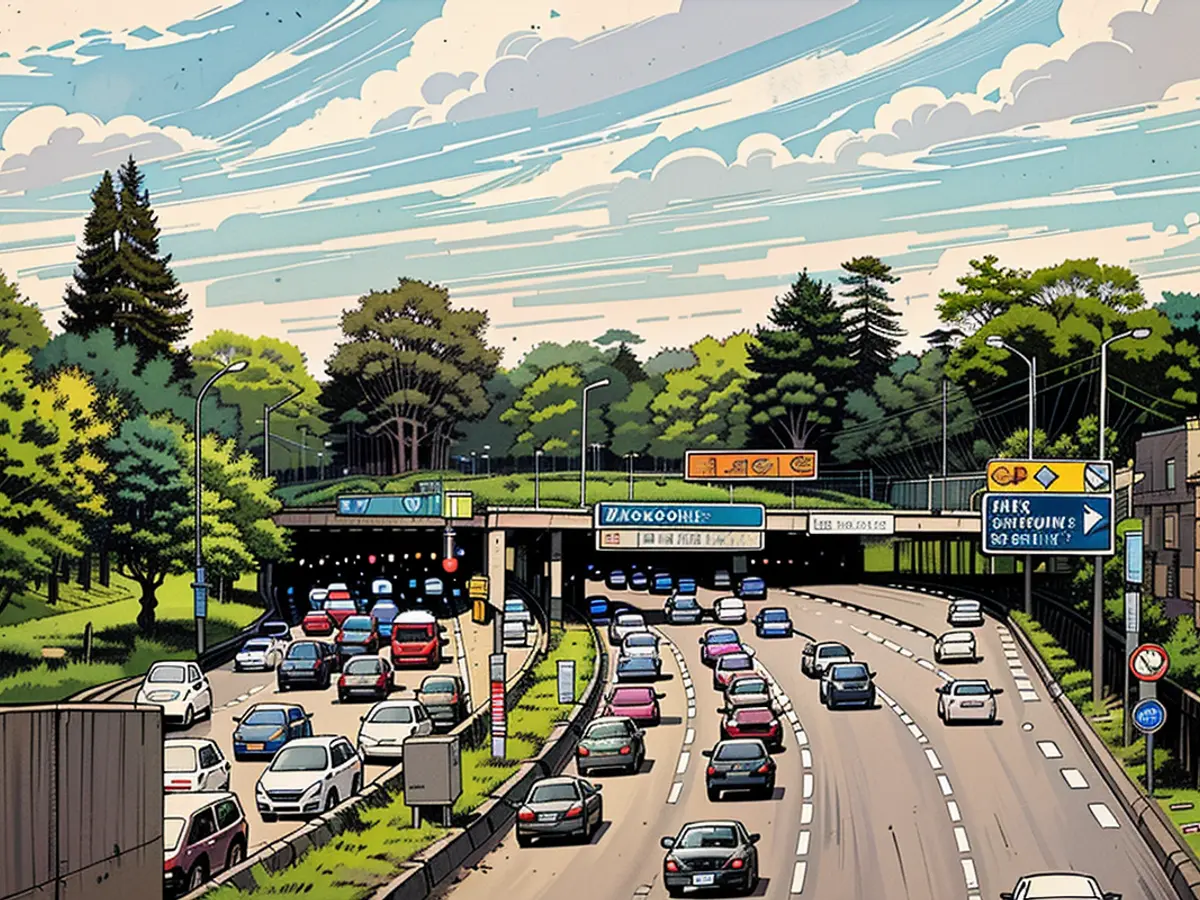Individuals visiting Paris by car will need to prepare substantial financial resources.
The Paris administration is pushing forward with the traffic overhaul despite opposition. Two fresh rules have been implemented recently. The city's own transport chief was amongst those protesting against one of the measures.
Starting from early October, tourists visiting Paris will encounter significantly hiked parking charges for large vehicles. Parking an hour in the city center now costs 18 euros for large vehicles, and six hours will cost you 225 euros. The rates outside the center are somewhat lower. Paris residents, artisans, or disabled individuals are exempt from this rule, but what constitutes "large" might surprise many common family cars and electric vehicles.
In a February survey involving merely 6% of eligible voters, 54.5% advocate for such increased parking charges. This new rate applies to gasoline and hybrid automobiles weighing 1.6 tons or more and electric vehicles weighing 2 tons or more. Independent parking garages remain untouched. The city justifies this move by arguing that heavy vehicles contribute to heightened environmental pollution, occupy substantial public space, and pose a risk to road safety.
Implementing this new rule is relatively straightforward. Paris's parking has been monitored using video vans for a while now, which document the license plates of parked vehicles. Individuals parking are required to input their license plate at the parking meter early on. The city can access vehicle and owner information through automatic license plate recognition, calculating which weight category the parked vehicles fall under.
Opposition from the Transport Chief
Mayor Anne Hidalgo managed to garner support for this subsequent phase of the traffic overhaul, despite opposition, with the assistance of the red-green city government. She had several riverside streets along the Seine closed to vehicles and made them pedestrian-friendly years ago. Paris's cycling network is expanding, with the reduction in the number of vehicle lanes and parking spaces. New green spaces are being developed, and virtually everywhere within the city, the speed limit has been set at 30 km/h. Around a year ago, the electric scooter rental service in Paris also came to an end, following a citizen survey where the majority voted against these scooters.
And starting from early October, despite the transport minister's objections, the mayor is progressing with another measure that has left many drivers of vehicles disgruntled. On Paris's perimeter road, the "Périphérique," the maximum speed limit will be reduced from 70 to 50 km/h. This move is intended to reduce noise for the numerous residents living near the highway. However, the average speed on the perimeter road during peak times is already well below 50 km/h.
The implementation of these parking charge increases for large vehicles has sparked controversy among various drivers. Other vehicles, including certain common family cars and electric vehicles, mightfind themselves affected by this new rule. Despite the transport chief's opposition, the Paris administration persists in implementing measures to improve traffic and reduce pollution.






